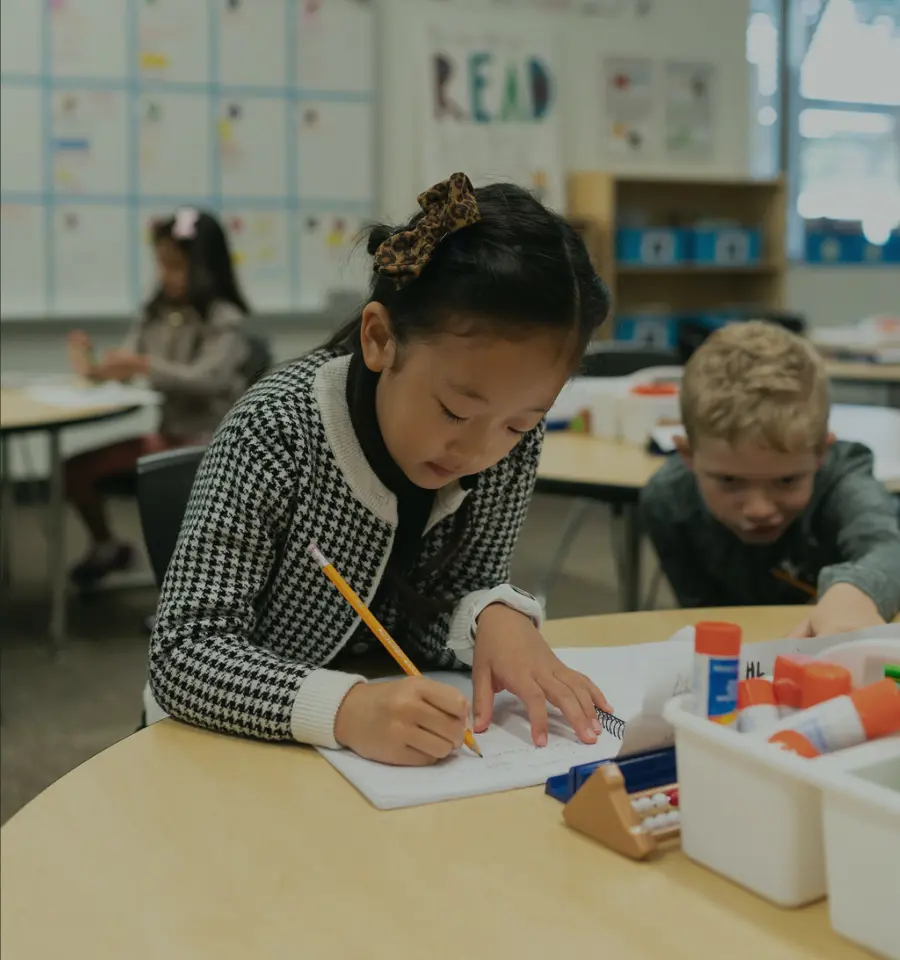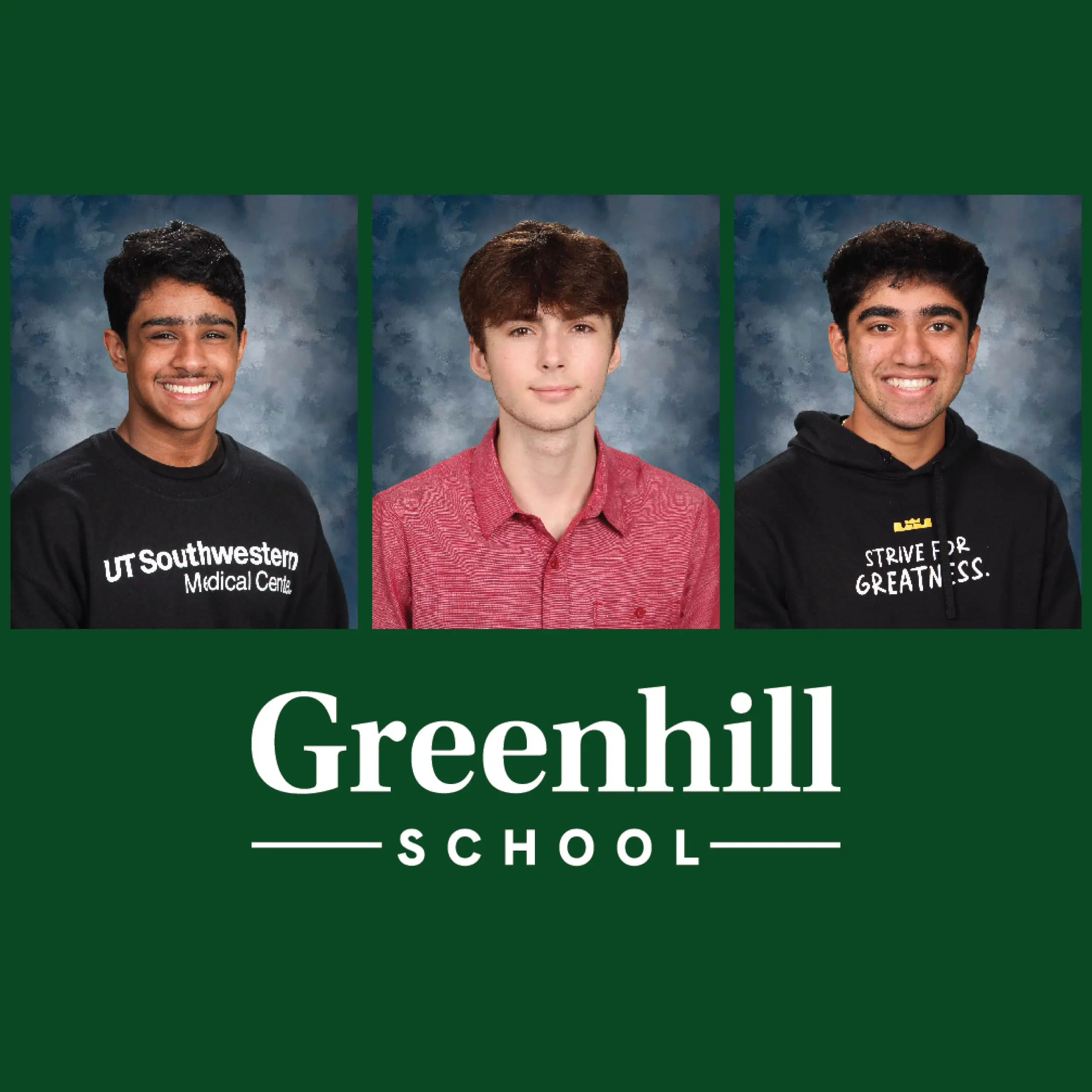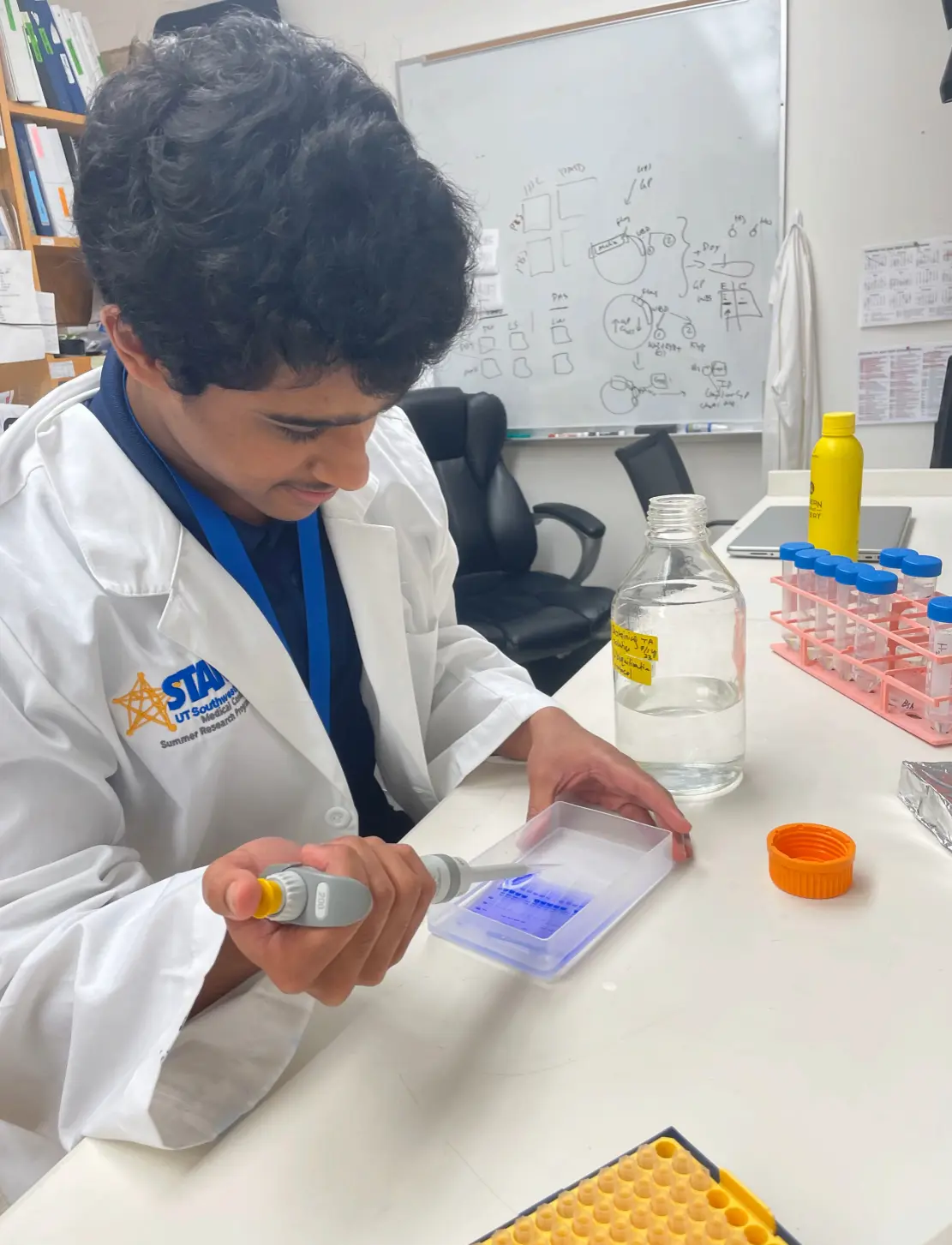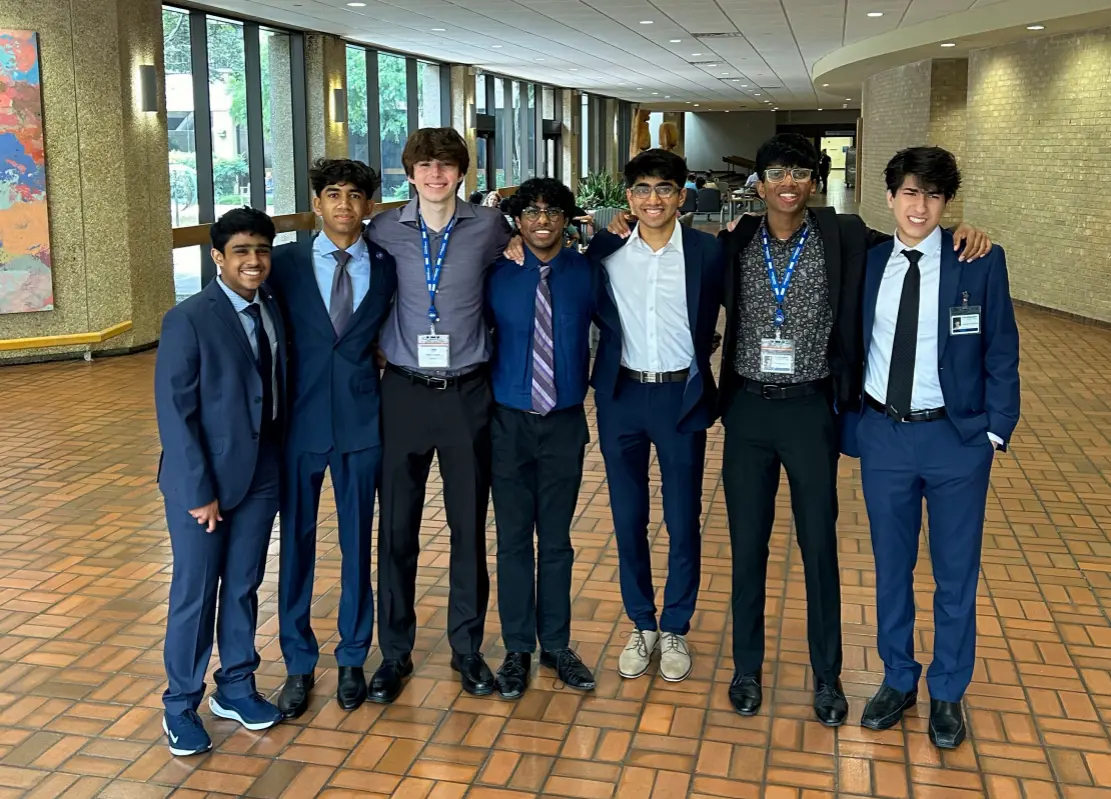Evergreen Spotlight: STARS Program Fuels Students’ Summer Research
Over the summer, three Greenhill seniors participated in the Science Teacher Access to Resources summer research program. The following story was featured in the November issue of the Evergreen.
|
By: Sasha Wai The program is commonly known as STARS, and the students selected this year spent eight weeks researching a specific biomedical topic under the guidance of faculty hosts. Each student presented their findings at the end of their experience. This past summer, Greenhill seniors Alden Kendall, Prabath Girish and Varun Mukund spent full workdays learning from principal investigators and mentors in their assigned labs. The STARS program is designed to give high school students the chance to pursue their interest at a higher level than an average high school curriculum, according to Upper School Science Department Chair Treavor Kendall. “It’s a commitment, and it’s very involved,” said Dr. Kendall. “For eight weeks, you’re in a professional lab, so you have to want to be there.” Application Process This year, Treavor Kendall says he recused himself from the Upper School Science Department’s role in the selection process because his son, Alden, was interested in the program. However, Dr. Kendall has years of insight into the STARS admissions process. “They’re not looking for students who have done a bunch of research,” said Dr. Kendall. “Quite the contrary, they’re looking for creativity, the ability to critically think, attitude, approach and the authenticity in terms of your interest.” Specifically, applicants are not allowed to have prior scientific research experience in a lab. “A lot of [the restriction] is intentional because some folks have opportunities either through family or other connections,” said Dr. Kendall. “The STARS program wants to make sure that they give kids who don’t have those privileges and those opportunities a chance to go into the lab.” Dr. Kendall says he encourages students to be authentic when expressing their intention for applying to the program during the process. “I think sometimes [students] are trying to match what they feel the interviewer, or the program wants to see or hear,” he said. “If any program is not that, it’s this one.” Alden Kendall echoes this sentiment. “You don’t have to make yourself sound super smart or show how educated you are,” said Alden Kendall. “You need to show your enthusiasm for science, how passionate you are about something or how excited you are about a topic.” Lafora Disease Girish was mentored by research team leader Sharmistha Mitra in the lab of principal investigator Berge Minassian. Girish studied enzymes that are linked to Lafora Disease, a genetic mutation that leads to a neurogenerative disorder in teens and children. Girish says he expressed interest in both neuroscience and genetics in his application. “I think brain sciences are really cool because they have a lot of implications outside of their molecular ability,” said Girish. Many of Girish’s experiments involved precise measurements of enzymes and cells. Girish says this forced him to pay close attention to his methodologies and procedures. “[Mitra] is obviously very well versed in [her area] to help me understand the experience and guide me through that process in a way that I don’t think I would’ve gotten if I was thrust in first,” said Girish. Outside the lab, Girish often attended lectures with fellow STARS students. Experts in alternative specialties gave the students symposiums about their work in research and medicine. “I thought the lectures were an eye-opening experience that helped me look into different fields of research and understand more of the larger work that goes into the process,” said Girish. Obesity and Diabetes “He would come home every day and would tell me what happened,” said Mukund. “I got really interested in it, and because I do a lot of policy and social science research but have never done scientific research, I applied.” Mukund studied the molecular pathways that trigger obesity and diabetes under principal investigator Joseph Goldstein and mentor Jing Tian. “I was trying to create mutants to the genes that code for mechanisms that lead to obesity,” said Mukund. “My goal was to find mutants to the genome that stopped that process.” Mukund says trial and error was a common occurrence during his time on the UTSW campus. “[Tian] was helping me in all my projects, with all my techniques, experimentation, all of that,” said Mukund. “It was a lot of handholding and guiding me through the process, and I think that really helped me overcome a lot of challenges and help me grow and learn through the mistakes.” Near the end of the eight-week program, students presented their respective biomedical topics. Mukund says although his topic involved a lot of complicated concepts, his principal investigator and mentors in the lab set him up for success. “I was a little nervous, but I was confident in my abilities,” said Mukund. “I had been in this program for eight weeks, and at that point I knew I had the support of my lab behind me.” Lung Cancer Treatment “[STARS] really just solidified a lot of what I like about science in the classroom and gave it applications and more of a collaborative sense,” he said. He worked with principal investigator Melanie Cobb and his mentor Ana Martin Vega. The focal point of their research involved working with taxanes, a class of chemotherapy drugs that blocks cell growth by halting cell division. “What we were hoping to do is basically cut out a gene, and by doing that, we sensitize them to the taxanes,” said Alden Kendall. “What that means is that by sensitizing the cells to the taxane for the same dosage, we would kill more cancer cells for the same amount of normal cells.” Kendall says his interest in biochemistry drove him to research treatments for lung cancer. “Lung cancer has been proved to be difficult to find treatments for,” he said. “This is an important step to take to hopefully help better the lives of people that are going through this.” Similar to Mukund, Alden Kendall says he learned a lot from his mistakes. “I learned that perfection is by far not the expectation, nor should it be,” said Kendall. “Every trial we do for data is run at least three times and most of the time you’re not going to see every single one of them work.” Meeting many peers in the STARS program, Alden Kendall says the friendships he fostered dramatically enhanced his experience. “We attended seminars, and they were a ton of fun,” he said. “They were on interesting topics, and I got to discuss them with my peers in a nonacademic lighthearted sense.” The day of the poster presentation, Alden Kendall joined his friends from the program for lunch and then they went to an escape room to celebrate completing the program. “I really value the connection I was able to make with [my peers],” Alden Kendall said. “I realized, these are really my friends, they’re not just my colleagues.” To see the full November issue of the Evergreen, click here. |
|









